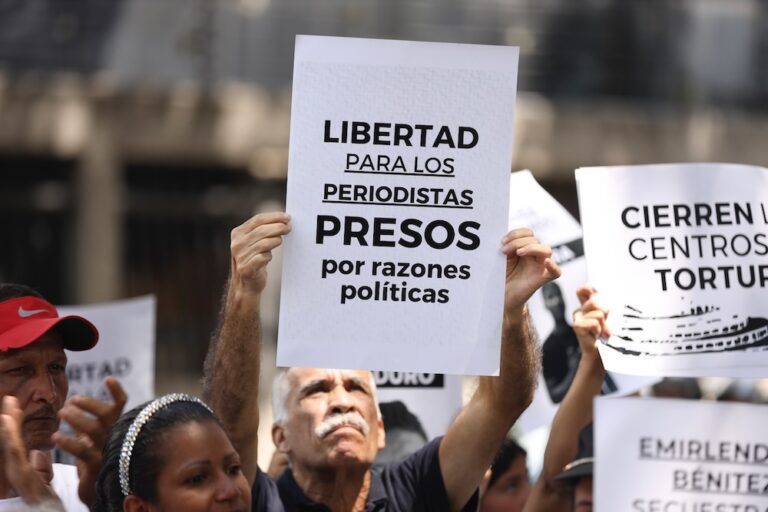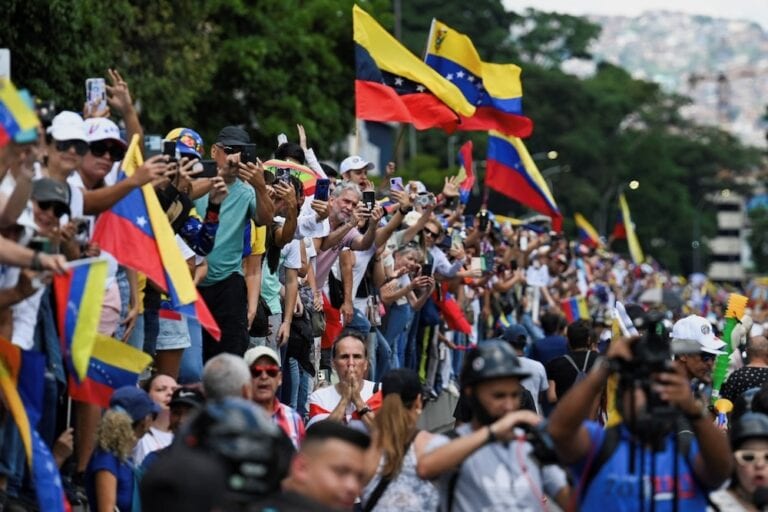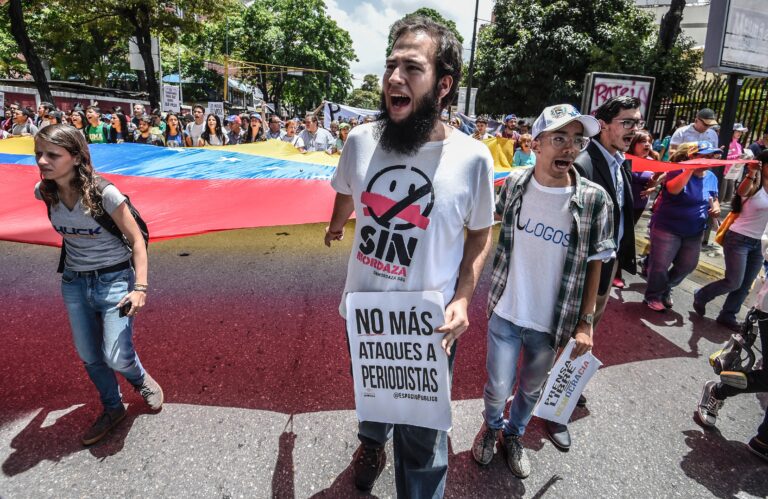The report documents how the accumulation of power in the executive and the erosion of human rights protections have allowed the Chávez government to intimidate, censor, and prosecute critics and perceived opponents.
(Human Rights Watch/IFEX) – Washington, DC, July 17, 2012 – The concentration of power under President Hugo Chávez has taken a heavy toll on human rights in Venezuela, Human Rights Watch said in a report released today.
The 133-page report, “Tightening the Grip: Concentration and Abuse of Power in Chávez’s Venezuela”, documents how the accumulation of power in the executive and the erosion of human rights protections have allowed the Chávez government to intimidate, censor, and prosecute critics and perceived opponents in a wide range of cases involving the judiciary, the media, and civil society.
“For years, President Chávez and his followers have been building a system in which the government has free rein to threaten and punish Venezuelans who interfere with their political agenda,” said José Miguel Vivanco, Americas director at Human Rights Watch. “Today that system is firmly entrenched, and the risks for judges, journalists, and rights defenders are greater than they’ve ever been under Chávez.”
Human Rights Watch’s last major report on Venezuela, released in September 2008, documented how democratic institutions and human rights guarantees had suffered during the first decade of Chávez’s presidency. Since then, the human rights situation in the country has become even more precarious.
While many Venezuelans continue to criticize the government, the prospect of facing reprisals – in the form of arbitrary or abusive state action – has undercut the ability of judges to adjudicate politically sensitive cases, and forced journalists and rights defenders to weigh the consequences of disseminating information and opinions critical of the government.


